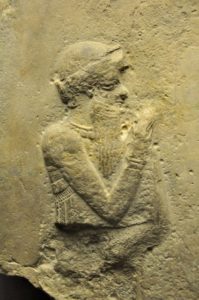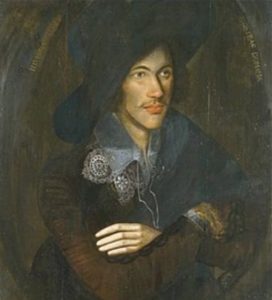My Little Gnudren,
The music for GNU 008 has appeared under each track, enlightening the soul and mind as to what one was trying to decipher years ago.
Old Gnu has no intention of rewriting the texts of his Psalms settings to make them more inclusive in terms of gender. While many are engaged in eliminating ‘him’s from our hymn books, Old Gnu remains a bit hard of heart like Conscious Pilate when he said: What I have written, I have written. He does believe in ‘gen deral’ inclusivity and equality, as exemplified by the following serious error.
Due to his flawed cultural conditioning he made a fatal mistake in his courting days (1972) of asking Mrs. Gnu’s mother if he could marry her daughter. He was duly but kindly reminded by her father that he should have asked the male parent. This seemed a very strange British tradition to young Gnu. He reasoned that Mrs. Gnu’s mother had been more involved in the physical creation of the then young (and not quite yet) Mrs. Gnu than her male parent. But such are our delightful customs in Britain!
Old Gnu is deeply repentant in spirit about the male domination of the world history and also of the many times he has not done the washing up. “Good old Hammurabi!” he exclaims to himself from time to time. From your studies of Ancient History I am sure you will remember Hammurabi lived from c.1810-c.1750 B.C., and that his famous Law Code gave women rights that exceeded those found in the Old Testament or Law Codes through many centuries afterwards to the present day. (But please note, the Old Testament is primarily about people grappling with God and discovering him in their lives and not about the niceties of law codes.) They even sound modern in the 21st Century. Read the laws from 130 onwards, noting law 137 on divorce and the wife’s rights. Also read the story of Hagar and Abraham in Genesis 16 and 21 (plus the bits between if you have time) and compare them with Hammurabi’s law no.146. Then decide which you think is more just. (Mr. Waki Pedia will provide you the link for the Law Code). Here is a picture of Mr. Hammurabi:

Mr. Waki Pedia has the following inscription under this photo: Detail of a limestone votive monument from Sippar, Iraq, dating to c. 1792 – c. 1750 BC showing King Hammurabi raising his right arm in worship, now held in the British Museum
Old Gnu’s response to this is, ‘Oh no! I thought I’d got worshippers out of my hair!’ And secondly, how can archaeologists tell that he is in fact worshipping? He could simply be giving a royal wave like our own monarch? The hand is at about the right level.
Hammurabi’s father was called Sin-Muballit and his grandfather was called Apil-Sin. But with his accession to the throne, and his wonderful law code, Hammurabi well and truly broke the chain of Sins. Wonderful man!
On the GNU 008 album there is a setting of Psalm 1. It presents a problem to the inclusivity streak in us all. The image is that of one person – he is called man – who goes against the trend of the community around him. He stands out in sharp contrast against the backdrop of the wicked, sinners and scoffers, coughers and the like. They are likened to noisy chaff being blown around in the wind. Stand on the Promenade in Clifton on a windy autumnal day and watch the countless fallen leaves swirl noisily round your ankles to fully get the imagery of this. In contrast to this noisy multitude ever on the move, the blessed man calmly sends down roots into something very wonderful.
Modern English translations ‘eliminate’ the man – he is after all non-inclusive and therefore politically incorrect – and substitute those for the non-inclusive man. Result? The imagery of the one standing out against the many goes down the pan. So it is with pain that old Gnu reads the words:
Blessed are those who do not follow….. They are like trees…. So you see we go from a single tree to having a forest! Hang it all, the Psalms are poetry from the first millennium B.C! Old Gnu doesn’t try to make the poetry of John Donne – (No person is an island …etc etc….)or any other pre-20th Century poet gender inclusive. Old Gnu simply accepts it’s poetry from a bygone era.
 (A portrait of John Donne – non-inclusive and politically incorrect poet – but very nice hat)
(A portrait of John Donne – non-inclusive and politically incorrect poet – but very nice hat)
In Gnu language the word for he and she is the same, ( Ինքն ), so you don’t have the problem of the English language in translating this wonderful poem.
Likewise Gnu laments the modern translations of Mark 8:35-37. We used to read, “What shall it profit a man if he gain the whole world and loses his soul?…. We now read, What shall it profit them to gain the whole world…”. Jesus’ idea is that of one person having everything, yet losing the one important thing.
The image is considerably spoilt by lots of people being able to have everything and losing their one important thing. Within the limitations of the English language and the drive for gender inclusivity in all language, (and this passage is not poetry), perhaps a slightly better translation would have been: What shall it profit anyone if they gain the whole world and forfeit their soul? ……or is this bad English?
And so on and so forth……. does it really matter…….. Gnu has taken to drinking Chai of late. Very nice indeed.
Vetus Pater Gnu
Academiae Musicorum et Theologia
Turris, [LA]
XX Martius MMXVIIIg
